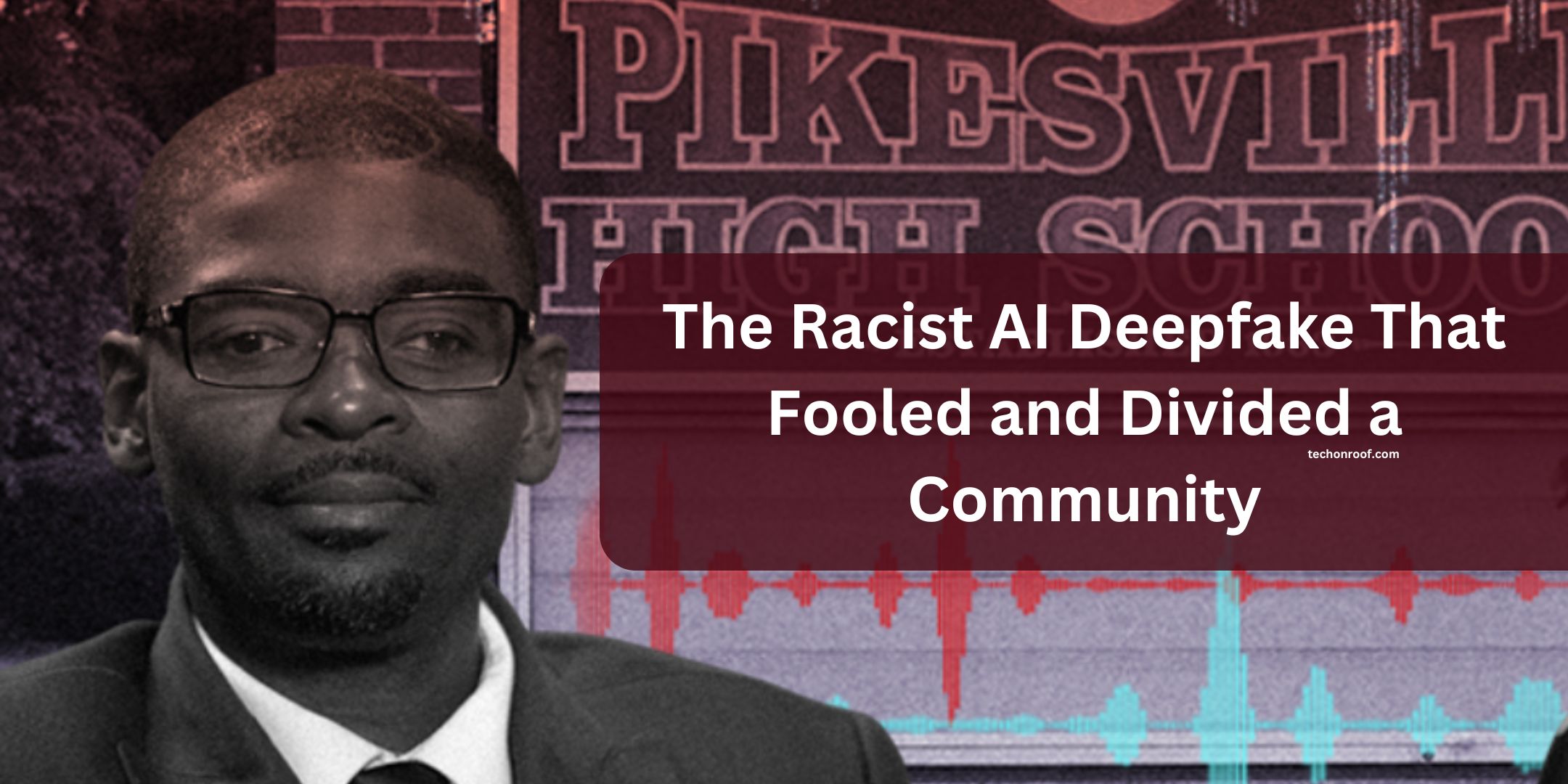When an audio clip surfaced that seemed to capture a local school principal making racist and offensive comments, it quickly spread online, triggering outrage, death threats, and turmoil in a Baltimore suburb. However, it soon came to light that the clip was an AI Deepfake. Despite this revelation, many people continue to believe the audio is real.
Read Also: Boost Your Brand Outreach: How to Harness Free AI Marketing Tool Effectively
The Fake Audio Clip That Went Viral
The controversial clip, posted in January, allegedly featured the principal of Pikesville High School, Eric Eiswert, making derogatory remarks. The speaker, who sounded like Eiswert, criticized students and community members with racist and antisemitic comments. He referred to “ungrateful black kids” and made offensive statements about Jewish people in the area.
The recording quickly went viral, especially in Pikesville, a quiet suburb with large Black and Jewish communities, as well as in nearby Baltimore, Maryland. As the clip spread, Principal Eiswert was placed on paid administrative leave while an investigation was conducted.
The Impact on the Community
Alfie Malone, a Black resident of Baltimore, was one of many people who believed the audio was real. He explained that the words in the clip resonated with him because they mirrored his own experiences with racism. After listening to other recordings of the principal, Malone was convinced the voice in the fake clip matched Eiswert’s real voice. As a result, he shared the clip on social media, where it gained even more traction.
Within hours, the clip had reached nearly two million views—about 60 times the population of Pikesville.
The AI Deepfake is Exposed
Journalist Kristen Griffith, who works for the Baltimore Banner, initially thought this was a straightforward case of a school official being caught making offensive remarks. However, when she reached out to Principal Eiswert’s union representative, she was told that Eiswert denied making the comments and suspected the audio was fake, generated using AI technology.
When Griffith reported this possibility, the community was skeptical. Many believed the claim of a deepfake was just an excuse to avoid accountability.
As police began investigating, the atmosphere at Pikesville High became tense. Staff felt unsafe, fearing that the school had been bugged. Meanwhile, Eiswert’s reputation was damaged, and both he and the school became targets for online threats and harassment.
The Truth Unfolds
In April, Baltimore Police Chief Robert McCullough announced that authorities had obtained conclusive evidence proving the audio clip was not authentic. They also identified a suspect: Dazhon Darien, the school’s athletic director.
Police charged Darien with multiple offenses, including theft, retaliating against a witness, and stalking. Investigators believe Darien created the deepfake to discredit Principal Eiswert, who had been investigating him for allegedly stealing $1,916 from the school. Darien was arrested at the airport while attempting to fly to Texas and is set to stand trial in December 2024.
Why Did People Believe the Deepfake?
The AI-generated clip was audio-only, making it harder to detect as fake. Unlike video deepfakes, which often show unnatural or robotic movements, the audio lacked visual cues that might have raised suspicion. Additionally, the clip included school-related terms and names that only someone familiar with Pikesville High would know.
Although there were signs of manipulation—such as abrupt cuts between sentences and a monotonous tone—many listeners overlooked these details. The content of the message itself felt believable to people like Malone, who had experienced racism firsthand. For some, the clip echoed genuine prejudices they had encountered in their own lives.
The Lingering Effects on Pikesville
Months after the clip was revealed as a fake, its effects are still being felt in the community. Principal Eiswert has since transferred to another school, but for many residents, the damage has already been done.
Sharon, a resident of Pikesville, initially believed the clip was real. She admitted that, even after learning it was AI-generated, the hateful message continued to anger her. For people like Sharon, the clip reinforced existing fears and anxieties about racism and antisemitism.
The Ongoing Threat of AI-Generated Misinformation
This incident highlights the growing danger of AI deepfakes and their potential to cause real harm. Social media platforms have policies to identify and remove AI-generated content, but these measures often come too late, after fake clips have already spread to millions.
Alfie Malone, who shared the fake audio clip, now regrets doing so. He feels sorry for the principal, who was wrongly accused, and worries that the deepfake has undermined real experiences of racism. “I’ve been burnt by the fire once,” he said. “I’m not touching the stove again.”
What’s Next
The Pikesville deepfake case serves as a cautionary tale about the power of AI technology to deceive and divide communities. As AI tools become more sophisticated, the challenge of identifying and combating misinformation will only grow. This incident underscores the importance of skepticism and critical thinking in the digital age, where even the most convincing content may not be what it seems.





